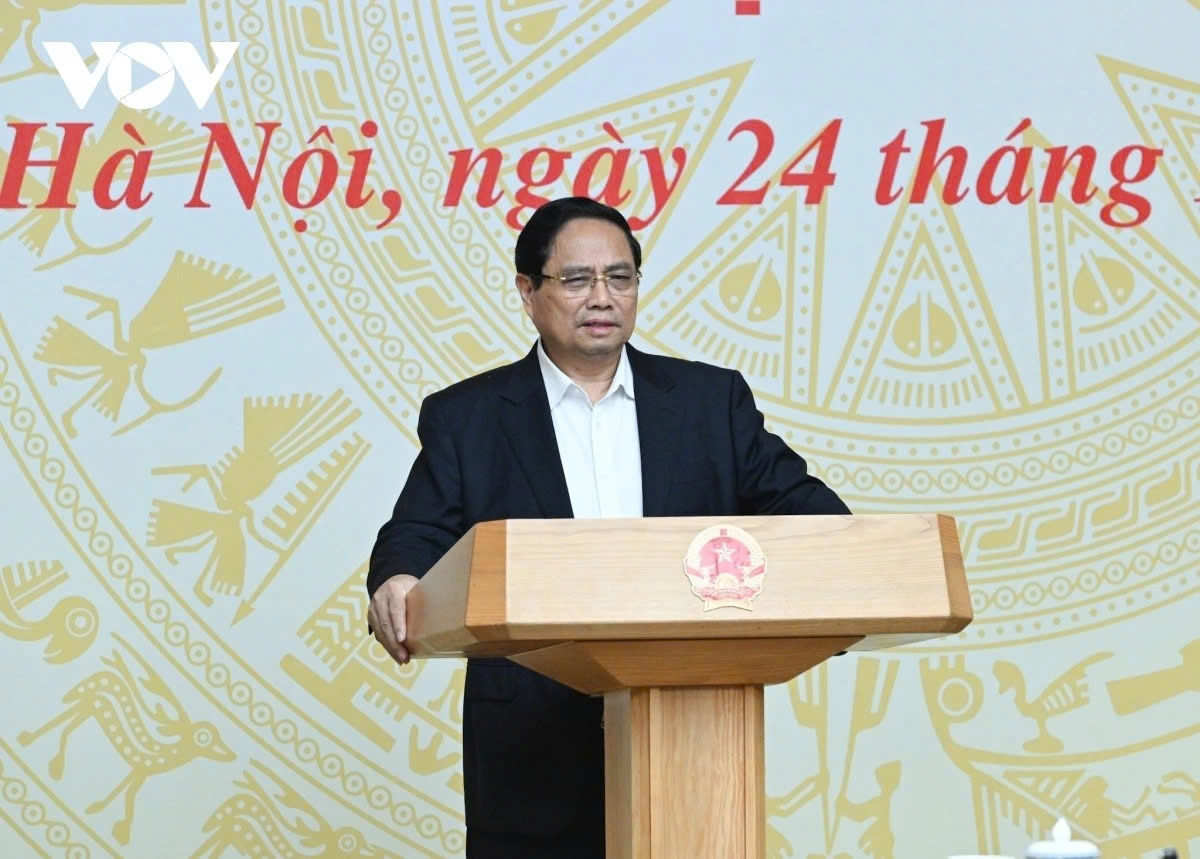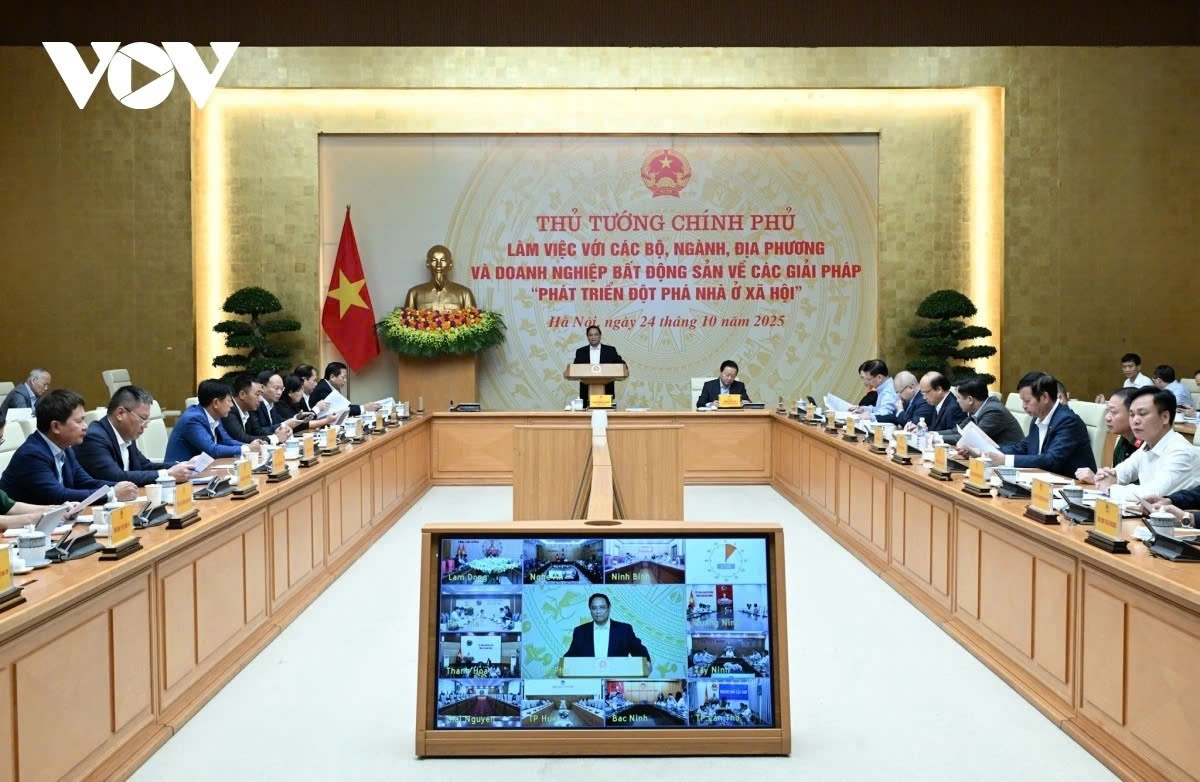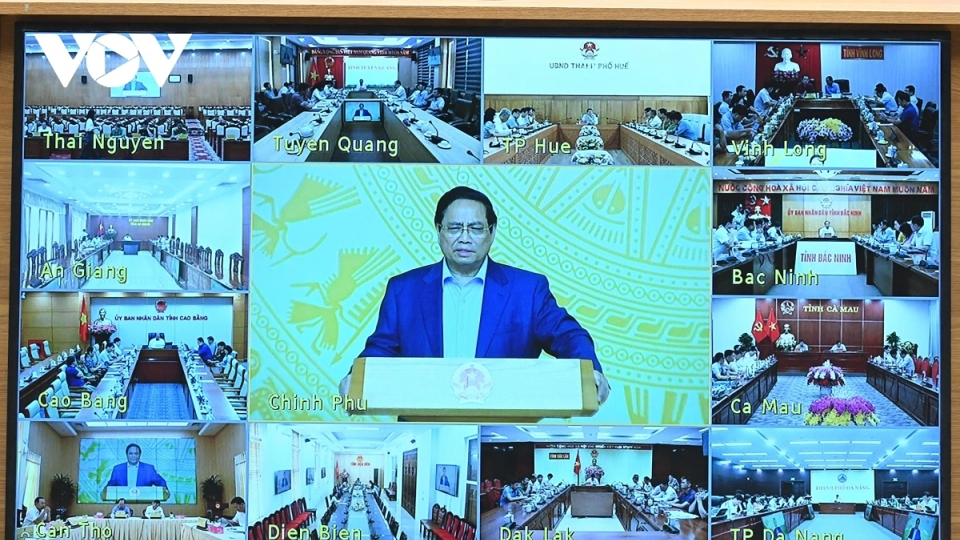Social housing must be developed quickly, transparently and fairly: PM
VOV.VN - Social housing projects must be developed as quickly, transparently, and conveniently as possible to ensure equal access for all, prevent negative practices, safeguard social welfare, and contribute to inclusive and sustainable national development, Prime Minister Pham Minh Chinh has emphasised.

The PM was speaking at a national conference on social housing development, held in Hanoi on October 24, and connected to 17 cities and provinces that have a high demand for social housing.
He affirmed that social housing is not only a welfare policy but also a long-term socio-economic development strategy, aligned with the goal of “leaving no one behind.” Therefore, he requested ministries, sectors, and localities to create the most favourable conditions for people, especially workers, low-income earners, and vulnerable groups, to buy, rent, or lease-purchase social housing.
He reminded that policies must serve the people, ensuring openness and transparency, leaving no room for favoritism or misconduct. Those with real needs must be the ones who truly benefit.
The Prime Minister assigned the Ministry of Construction to take the lead and coordinate with relevant agencies to finalise a draft Government Resolution on breakthrough solutions for social housing development during 2025–2026, clearly defining mechanisms, resources, and responsibilities of each level and sector.
The Ministry was also tasked with reviewing and proposing flexible, diversified financing mechanisms, including the establishment of a social housing development fund and dedicated credit packages, helping people access affordable housing more easily.

The country has so far completed nearly 500 social housing projects with more than 260,000 apartments, meeting only about 40% of total demand. The Ministry of Construction is working with localities to speed up the progress of the one-million-unit social housing programme by 2030, with more than 100,000 units targeted for completion during 2025–2026.
The Prime Minister underscored the need to integrate social housing planning with synchronised infrastructure, including transport, electricity, water, healthcare, education, and culture to ensure residents not only have homes but also access to decent living conditions and jobs.
He also called for stronger administrative reforms, shorter project approval timelines, and stricter inspection and supervision, stressing that any misconduct, speculation, or improper allocation of social housing must be strictly punished.
The Prime Minister affirmed that the Government would soon issue a new resolution with more open and flexible mechanisms to facilitate active participation from both citizens and businesses.





